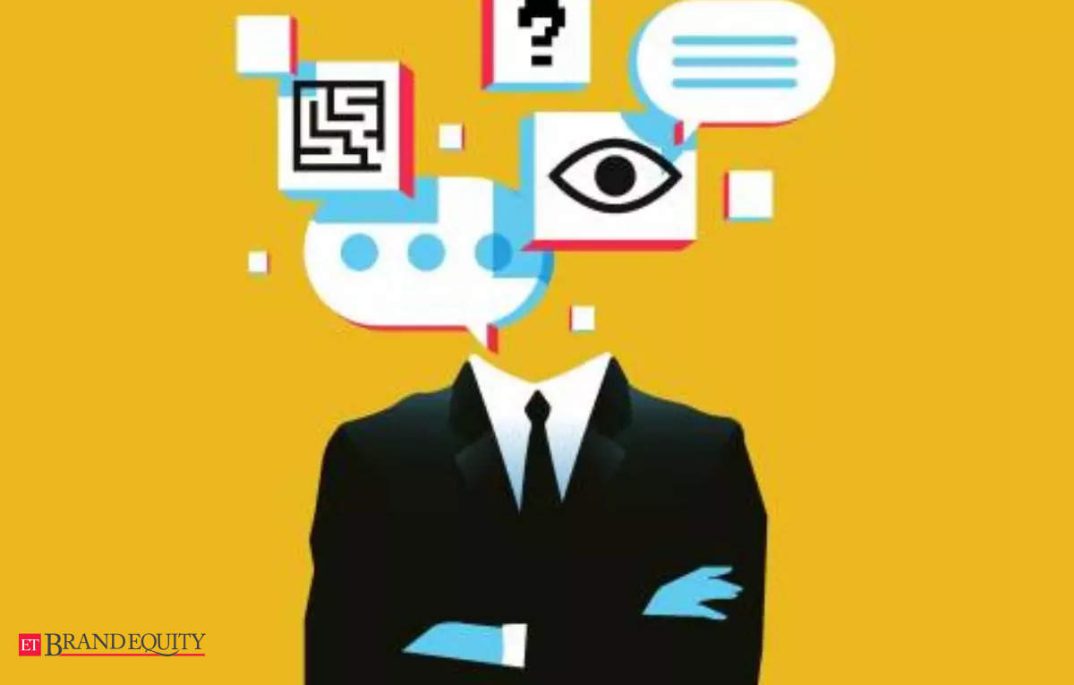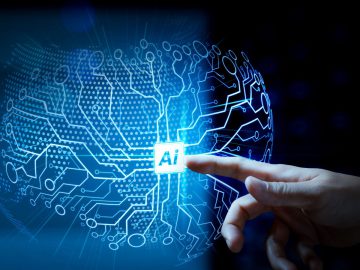Image used for representative purpose (iStock)
“/>Image used for representative purpose (iStock)As marketers are increasingly becoming data-driven, artificial intelligence (AI) is integral to stay competitive. With the ability to analyse massive datasets, predict consumer behaviour, and offer personalised recommendations, AI has undoubtedly transformed the marketing discipline. But an overreliance on automated insights runs the risk of overshadowing the human intuition that catches what AI cannot. Not finding the right balance will cost many CMOs dearly in the near future.
At the core of today’s marketing, indeed AI offers a range of benefits. Automated systems can quickly analyse customer data, revealing patterns that help companies target the right audience with precision. But while AI excels in analysing trends and making recommendations based on historical data, it lacks the creative instincts and emotional intelligence that marketers bring to the table. But wouldn’t AI tools reduce marketing to a mechanical process, sidelining the human element that often sparks innovation and resonates with audiences on a deeper level?
Marketing is not solely a science of data but an art that depends heavily on intuition, emotional connection, and creativity. Human marketers understand the nuances of consumer attitudes in ways that AI simply cannot. While algorithms can identify patterns and predict future behaviors, they cannot anticipate the unexpected. AI might suggest a campaign based on prior successes but fail to recognise that market dynamics have shifted, rendering its recommendations less effective. Human intuition, shaped by experience and an understanding of cultural context, is vital in navigating these unpredictable shifts.Consider the fashion industry as an example. A clothing retailer might use AI to analyse consumer behaviour and segment audiences based on age, income, or buying patterns. While AI could identify a demographic trend of young professionals gravitating toward formalwear, it might miss the nuance that these consumers are also embracing more casual styles for a hybrid work era. Without the input of humans, the resulting campaign could focus too heavily on traditional office attire, missing an opportunity to tap into the new preferences.
Similarly, AI-driven marketing can sometimes fall into the trap of being overly formulaic. Automated systems are designed to optimise based on what has worked in the past, which can lead to a more cautious approach to creativity. Marketing campaigns that rely too heavily on data and automated tools may lack the imaginative spark that creates magical campaigns. When creativity is diminished, so too is the brand’s ability to stand out in a crowded market.
The risks of overdependence on AI are not just limited to creativity and intuition. There are also significant ethical considerations. As AI systems learn more about consumer behaviours and preferences, they enable hyper-targeted marketing strategies that can blur the line between personalised content and invasive surveillance. Microtargeting, while efficient, can raise concerns about privacy and the potential for exploitation. Consumers are becoming increasingly aware of how their data is being used, and if marketing teams prioritise efficiency over ethics, they risk losing the trust of their audience.
More and more consumers are getting uncomfortable to know that every click, scroll, or purchase they make is being tracked and used to create highly tailored ads. Consumers value their privacy, and AI systems that disregard this by over- utilising data without explicit consent risk damaging a brand’s reputation. Remember how Facebook took a huge cut in ad revenue when Apple IOS increased the privacy settings on third party cookies? Meta was the first to layoff tens of thousands of employees. Ethical marketing involves more than just data compliance; it requires a respect for the customer’s agency and boundaries.
AI bias is another area of concern. While algorithms are designed to be objective, they are only as unbiased as the data they are trained on. Historical biases in data can manifest in AI recommendations, leading to skewed marketing plans that unintentionally exclude or misrepresent certain segments of the audience. A real-world example of this occurred when a leading e-commerce giant discovered that its AI-driven recruitment tool was biased against female candidates. Trained on resumes submitted over a decade, the algorithm favoured men, reflecting the male-dominated tech industry of the past. Although this was a recruitment tool, the lesson applies to marketing as well. AI bias can lead to exclusionary campaigns.
Indded, the positive outcomes of AI in marketing are undeniable. When used judiciously, it can significantly enhance the precision and efficiency of marketing campaigns. Its ability to handle massive datasets allows marketers to uncover insights that would otherwise remain hidden. It can analyse consumer demographics, purchasing history, and social media sentiment, providing a 360-degree view of the customer. Marketers can use this to create experiences for each at scale, and drive engagement and improving conversion rates.
A company selling sports gear, for instance, could use AI to predict that a customer who recently purchased running shoes might soon be interested in buying workout clothes or other outdoor gear. With this knowledge, marketers can send targeted offers at the right time, increasing the likelihood of a sale. E-commerce platforms, for example, use AI to recommend products to individual users based on their browsing and purchasing history.
However, the key to leveraging AI effectively lies in balancing it with human input. AI should be viewed as a tool that enhances human capabilities, not a replacement for them. Marketers must continue to apply their creativity, intuition, and ethical judgment when crafting campaigns, using AI to make decisions rather than getting dictated. For instance, AI might provide a recommendation based on data analysis, but before acting on it, the marketer should consider whether it aligns with the brand’s values, the emotional needs of the audience, and the broader market context. This human oversight ensures impact.
Yes, AI offers remarkable potential for transforming marketing but, overreliance on it can stifle creativity, lead to ethical pitfalls, and overlook the nuanced understanding that only human marketers can provide. So, if you want to succeed as a marketer, try to have your brain controlling the final outcomes.
Marketing has always been about understanding human behaviour—what drives people, what influences their decisions, and how they react to different messages and triggers. But, as we all know, capturing this complex and evolving behaviour is far from easy. One thing that often gets overlooked in understanding consumer behaviour is time—the 4th dimension. When we start looking at data through the lens of time, we unlock entirely new insights that static data points simply can’t provide.
From artificial intelligence (AI) to strategic brand collaborations, marketing will revolutionize how brands connect with their audience, says the author. The article looks at the important trends and predictions about what will come.
- Published On Oct 1, 2024 at 08:08 AM IST
Join the community of 2M+ industry professionals
Subscribe to our newsletter to get latest insights & analysis.
Download ETBrandEquity App
- Get Realtime updates
- Save your favourite articles
![]()
![]()
Scan to download App





